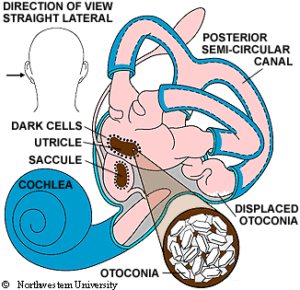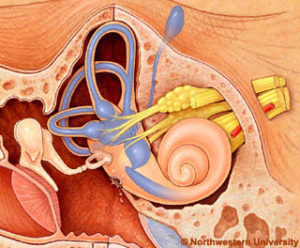The head trauma hearing loss included in a traumatic brain injury (TBI) most usually affects the mechanical process. In the USA alone, surveys suggest that there are over one million cases of traumatic brain injury each year which require hospitalization, and as many as 3 million cases of any head injury, including mild injuries.
Traumatic brain injury is an injury to the brain, not to chronic or inborn nature, resulted due to an external physical force which may produce a different state of consciousness, that result in a reduction of mental abilities.
You can purchase the latest hearing aids at a fair price through HearingSol, If you need more information or you have a query about Head Trauma Cause Hearing Loss, just give us a call on +91-9327901950. We are always here to help you.
Symptoms of hearing loss caused due to head trauma
- Dizziness and vertigo are also very common symptoms associated with damage to the ears from traumatic brain injury.
- Difficulty in understanding speech, especially when there is background noise.
- Difficulty in locating sounds (knowing where they are coming from).
- Tinnitus (ringing in the ears with no external source).
- Hyperacusis (extreme sensitivity to sounds).
- Conductive or sensorineural hearing loss.
- Neurological changes such as weakness, loss of balance or change in vision
- Feeling dazed, confused
Effects of head trauma on hearing loss
- Traumatic brain injury can result in a variety of problems related to the ear, including hearing loss, dizziness, vertigo, and tinnitus.
- The head trauma can cause damage at any point between the outer ear and the auditory cortex in the brain.
- Auditory problems could be wrong for other conditions, including post-traumatic stress disorder, mental disruptions or mental health issues.
Some facts about concussions
A concussion is a type of traumatic brain injury(TBI) which is mild and caused due to bump or jolt to the head or neck. A concussion also causes due to the jarring of the head or the violent movements or also due to sound blast in which the sound pressure is so high that it can damage your brain.
The concussion is the primary injury in the mild concussion of the brain. Hemorrhaging of the brain may also appear in the moderate to severe cases of concussion.
The most common causes of concussions are sports injuries, falls, car accidents and sports injuries. The concussions are not so much of danger the people can recover from it quick. It can cause serious symptoms of hearing loss. The people who have sustained concussions once have more chances to suffer from another one.
Effects on the hearing of Traumatic Brain Injuries, Concussion
Painful brain injury can lead to many problems related to the ear, including hearing loss, dizziness, dizziness, and tinnitus.
Due to the sudden and violent nature of the injury, head trauma can harm the hearing path. Damage may occur at any point between the external ear and the hearing cortex in the brain.
Therefore, there is not a specific type of hearing impairment that occurs with TBI, but there are various types of complex symptoms that can be challenging to cope with the injured person.
Even an injury can result in loss of light in the ear as an injury or changes in the hearing path to the brain. Although some of these changes are reversible, others are not unfortunate. These changes may include a broken eardrum, damage to small bones of the middle ear, damage to internal ear tissues and membranes and disruption of blood flow to the cochlear nerve. Internal hair cells are particularly vulnerable to damage.
These changes may include a broken eardrum, damage to small bones of the middle ear, damage to internal ear tissues and membranes and disruption of blood flow to the cochlear nerve. Internal hair cells are particularly vulnerable to damage.
The following changes can be observed in the auditory system
- Auditory problems could be wrong for other conditions, including post-traumatic stress disorder, mental disruptions or mental health issues.
- A ruptured eardrum and damage hair cells.
- Damage to the small bones of the middle ear.
- Damage to the tissues and membranes of the inner ear.
- Disruption of blood flow to the cochlear nerve.
Types of post-traumatic hearing loss
Conductive hearing loss
Disruption to the ear bone can cause conductive hearing loss
s. This means hearing is better through bones than air.
It is due to problems with the ear canal, eardrums, or middle ear and its little bones.
Cochlear hearing loss
It is also known as Sensorineural Hearing Loss (SNHL).
In this hearing situation, hearing is affected due to head trauma but not vestibular function.
Neural hearing loss
The neural hearing loss is due to damage to the 8th nerve, such as due to temporal bone fracture, or traction on the nerve between the lip of the IAC and brain.
Central hearing loss
The central hearing loss is due to damage to the brain and it is rare.
The “Central” part of a hearing deficit that does not respond to hearing aids, but rather should be treated to aimed at optimizing their other communication abilities.
Conclusion
Thus whatever is the cause of head trauma it can affect the auditory system and lead to hearing loss. Thus proper diagnosis should be done so that the affected part is located and hearing loss can be treated better.


